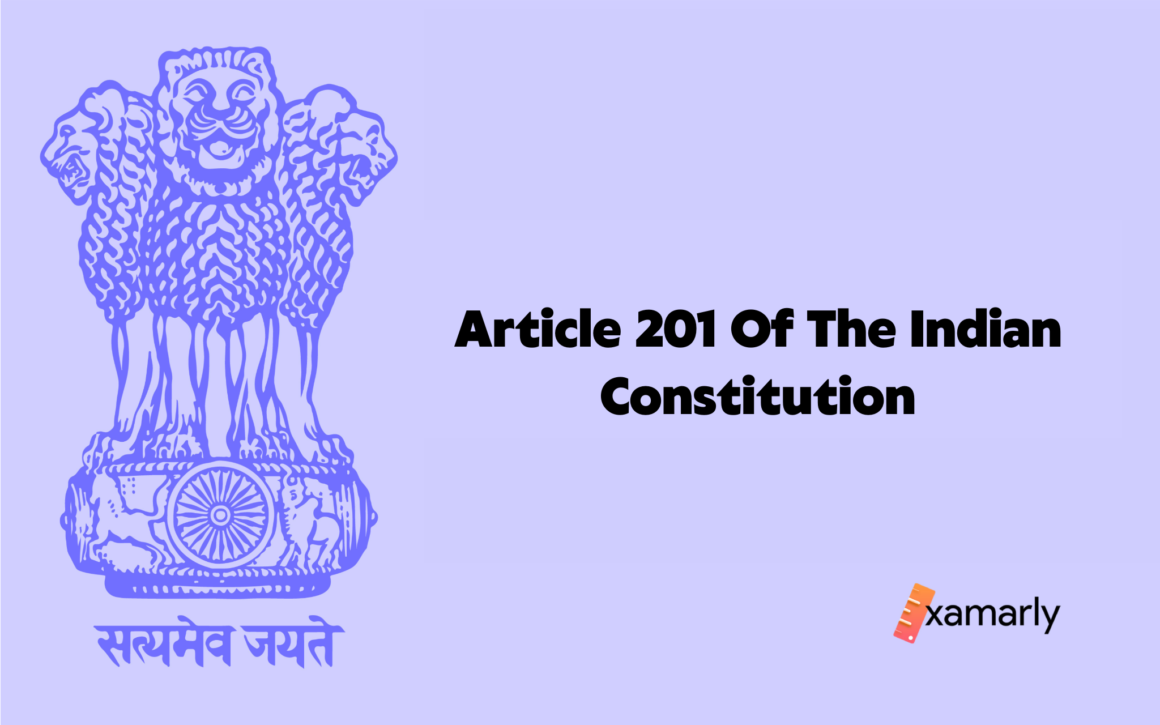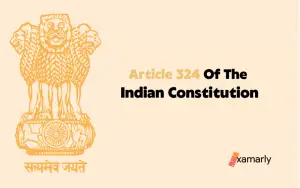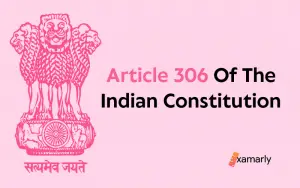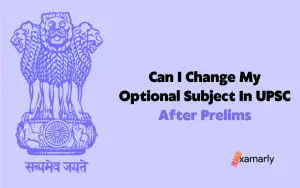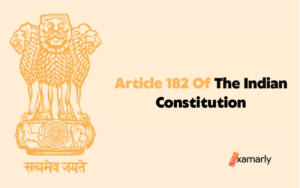An Outline
What does Article 201 of the Indian Constitution say about the powers of the President when a Governor reserves a bill for consideration?
If the bill is reserved by a Governor for consideration of the President, it accords the President with the power to approve, or withhold his approval, or in case the bill is not a money bill, the President can direct the Governor to send the bill back to the House or Houses of the Legislature of the State for reconsideration.
Let’s understand it better in the sections below.
- An Outline
- The Clause – As It Is & Explained
- Mentioned below are the State Bills assented/withheld assent/returned with a message by the President in the year –
- 2019:
- 2021:
- FAQs Related To Article 201 Of The Indian Constitution
- What happens when the Bill reserved for the President's consideration is a Money Bill?
- How is Article 201 of the Indian Constitution different from Article 200?
- What role does the Governor play once he reserves a Bill for the President's consideration?
- When does a Governor reserve a Bill for the President's consideration?
Article 201 Of The Indian Constitution – In Detail
Before we dive into the details of Article 201 of the Indian Constitution, let’s read what it states.
The Clause – As It Is & Explained
201. Bills reserved for consideration.—When a Bill is reserved by a Governor for the consideration of the President, the President shall declare either that he assents to the Bill or that he withholds assent therefrom: Provided that, where the Bill is not a Money Bill, the President may direct the Governor to return the Bill to the House or, as the case may be, the Houses of the Legislature of the State together with such a message as is mentioned in the first proviso to article 200 and, when a Bill is so returned, the House or Houses shall reconsider it accordingly within a period of six months from the date of receipt of such message and, if it is again passed by the House or Houses with or without amendment, it shall be presented again to the President for his consideration.
Article 201 of the Indian Constitution deals with provisions attributed to bills reserved by a Governor for the President’s consideration.
When a bill is brought to the attention of the President by a Governor, the President is required to make one of two declarations: either that he assents to the bill or that he withholds his consent from it.
However, when the bill in question is not a money bill, the President may also ask the Governor to send it back with a message attached. When a bill is sent back in this manner, the relevant House or Houses of the Legislature of the State must reconsider it within a period of six months from the date on which they received the message.
If the bill is thereafter passed by the House or Houses, with or without amendments, it must then be sent back to the President for consideration.
You might also want to read – Article 170 of the Indian Constitution
Mentioned below are the State Bills assented/withheld assent/returned with a message by the President in the year –
2019:
| Sr.No | Particulars of Bills | Name of the State | Status | Date of Presidents assent/withhold/message | Remarks |
|---|---|---|---|---|---|
| 1 | Dunlop India Limited (Acquisition and Transfer of Undertaking) Bill, 2016 | West Bengal | Assent withheld | 15/01/2019 | |
| 2 | The Criminal Law (Gujarat Amendment) Bill, 2018 | Gujarat | Assented | 25/04/2019 | |
| 3 | The Gujarat Ownership Flats (Amendment) Bill, 2018 | Gujarat | Assented | 25/04/2019 | |
| 4 | The Tamil Nadu Forest (Amendment) Bill, 2019 | Tamil Nadu | Assented | 03/05/2019 | |
| 5 | The Andhra Pradesh Maritime Board Bill, 2018 | Andhra Pradesh | Assented | 04/05/2019 | |
| 6 | The Code of Criminal Procedure (Andhra Pradesh Amendment) Bill, 2018 | Andhra Pradesh | Assented | 04/05/2019 | |
| 7 | The Criminal Law (Tripura Amendment) Bill, 2018 | Tripura | Assented | 04/05/2019 | |
| 8 | The Rajasthan Apartment Ownership Bill, 2015 | Rajasthan | Assented | 06/05/2019 | |
| 9 | Dowry Prohibition (Bihar Amendment) (Repeal) Bill, 2018 | Bihar | Assented | 20/05/2019 | |
| 10 | The Bengal Agra and Assam Civil Courts (Jharkhand Amendment) Bill, 2018 | Jharkhand | Assented | 20/05/2019 | |
| 11 | The Code of Criminal Procedure (Uttar Pradesh Amendment) Bill, 2018 | Uttar Pradesh | Assented | 01/06/2019 | |
| 12 | The Industrial Disputes (The Tamil Nadu Amendment) Bill, 2019 | Tamil Nadu | Assented | 01/06/2019 | |
| 13 | The PEPSU Tenancy and Agriculture Lands (Haryana Amendment) Bill, 2017 | Haryana | Assented | 11/06/2019 | |
| 14 | The Karnataka Debt Relief Bill, 2018 (Karnataka Runa Parihaara Vidheyaka, 2018) | Karnataka | Assented | 16/07/2019 | |
| 15 | The Right to Fair Compensation and Transparency in Land Acquisition, Rehabilitatio and Resettlement (Karnataka Amendment) Bill, 2019 | Karnataka | Assented | 16/07/2019 | |
| 16 | The Gujarat Housing Board (Amendment) Bill, 2019 | Gujarat | Assented | 18/07/2019 | |
| 17 | The Tamil Nadu Private School (Regulation) Bill, 2018 | Tamil Nadu | Assented | 07/08/2019 | |
| 18 | The Gujarat Agricultural Land Ceiling (Amendment) Bill, 2019 | Gujarat | Assented | 07/08/2019 | |
| 19 | The Tripura Industries (Facilitation) Bill, 2018 | Tripura | Assented | 10/08/2019 | |
| 20 | The Right to Fair Compensation and Transparency in Land Acquisition, Rehabilitation, and Resettlement (Tamil Nadu Second Amendment) Bill, 2014. | Tamil Nadu | Assented | 19/08/2019 | |
| 21 | The Registration (Andhra Pradesh Amendment) Bill, 2019 | Andhra Pradesh | Assented | 19/08/2019 | |
| 22 | The Bengaluru Dr. B.R. Ambedkar School of Economics University Bill, 2018 (Bengaluru Dr. B.R. Ambedkar Arthashasthra Vidyalaya Vishwavidyalaya Vidheyaka, 2018 | Karnataka | Assented | 21/09/2019 | |
| 23 | The Tamil Nadu Agricultural Produce and Live Stock Contract Farming and Services (Promotion and Facilitation) Bill, 2019 | Tamil Nadu | Assented | 25/09/2019 | |
| 24 | The Jharkhand University of Technology (Amendment) Bill, 2018 | Jharkhand | Assented | 25/09/2019 | |
| 25 | The Odisha Ground Water (Regulation, Development & Management) Bill, 2011 | Odisha | Assented | 05/09/2019 | |
| 26 | The Indian Stamp (Jharkhand Amendment) Bill, 2011 | Jharkhand | Assented | 14/10/2019 | |
| 27 | The Gujarat Control of Terrorism and Organised Crime Bill, 2015 | Gujarat | Assented | 15/10/2019 | |
| 28 | The Industrial Dispute (Bihar Amendment) Act, 2018 | Bihar | Assented | 28/10/2019 | |
| 29 | The Maharashtra Media Persons and Media Institution (Prevention of Violence and Damage of Loss to Property) Bill, 2017 | Maharashtra | Assented | 28/10/2019 | |
| 30 | The Rajasthan Bovine Animal (Prohibition of Slaughter and Regulation of Temporary Migration of Export (Amendment) Bill, 2018 | Rajasthan | Assented | 15/11/2019 | |
| 31 | The Indian Partnership (Gujarat Amendment) Bill, 2019 | Gujarat | Assented | 15/11/2019 | |
| 32 | The Civil Laws (Uttar Pradesh Amendment) Bill, 2019 | Uttar Pradesh | Assented | 29/11/2019 | |
| 33 | The Tamil Nadu Land Acquisition Law (Revival of Operation, Amendment, and Validation) Bill, 2019 | Tamil Nadu | Assented | 02/12/2019 | |
| 34 | The Cigarettes and Other Tobacco Products (Prohibition of Advertisement and Regulation of Trade and Commerce, Production, Supply and Distribution (Rajasthan Amendment) Bill, 2019. | Rajasthan | Assented | 31/12/2019 |
2021:
| Sr.No | Particulars of Bills | Name of the State | Status | Date of Presidents assent/withhold/message | Remarks |
|---|---|---|---|---|---|
| 1 | Assented | 14/06/2021 |
Conclusion
Article 201 of the Indian Constitution explains the role of the President in the case of State Bills. It clearly states that the President is accorded three choices.
- to give assent to the Bill
- to withhold assent (provided that the Bill is not a Money Bill)
- direct the Governor to return the Bill to the House for reconsideration. If returned, the State Legislature has to consider it within a period of six months. There’s no obligation on the President to give assent if the Bill reaches him for the second time.
FAQs Related To Article 201 Of The Indian Constitution
What happens when the Bill reserved for the President’s consideration is a Money Bill?
In the case of Money Bills, there are only two choices, either to give approval to the Bill or withhold assent. But they can’t be sent back to the House or Houses of the Legislature of the State for reconsideration.
How is Article 201 of the Indian Constitution different from Article 200?
In contrast to Article 200, which clearly states that the Governor is not permitted to withhold assent from a Bill after the State Legislature is suggested to reconsider, Article 201 does not include any provisions of this kind in its text. This indicates that the Bill will become law if the President gives his consent to it, but there is nothing that can be done if the President refuses to give his assent to the Bill or if he does not make any decision at all.
What role does the Governor play once he reserves a Bill for the President’s consideration?
In the instance, a Bill is reserved for the consideration of the President, the Governor’s role in the enactment of the Bill comes to an end.
When does a Governor reserve a Bill for the President’s consideration?
The Governor of a State possesses the power to reserve a bill for the consideration of the President when he feels that the bill threatens or compromises the authority of the High Court or the Central Government.


